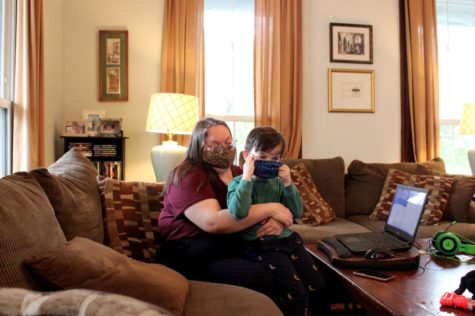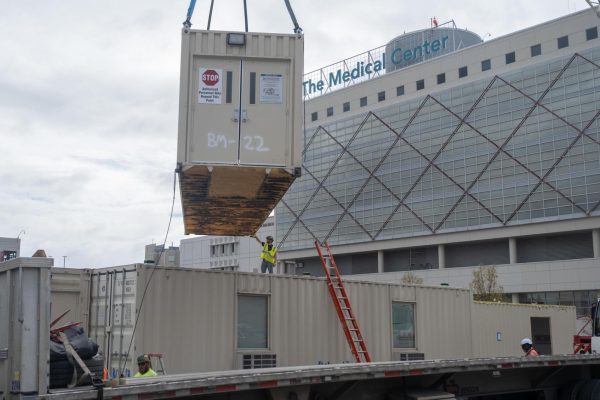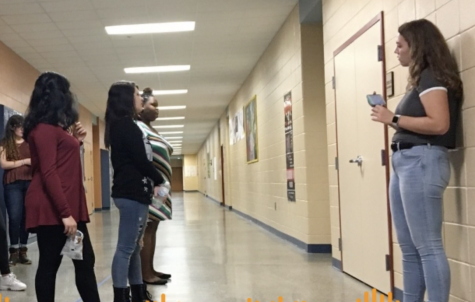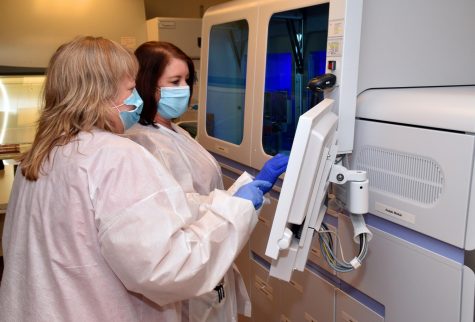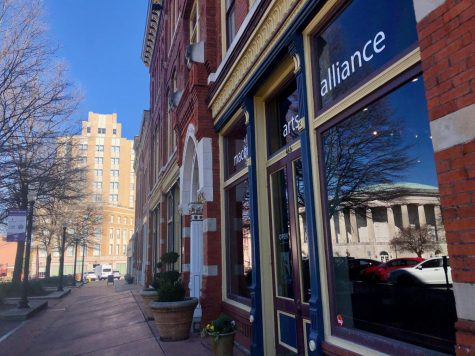COVID-19 street vendor policy goes into effect in Macon-Bibb
Until the end of the year, licensed vendors will get a reduced rate to set up shop on Macon-Bibb County public sidewalks to help people make money during the COVID-19 pandemic.

Food carts and street vendors could soon be popping up around Macon-Bibb County after commissioners approved a temporary relaxing of regulations due to COVID-19.
Mayor pro tem Al Tillman spearheaded the effort to help entrepreneurs suffering financial losses during the pandemic and to curb illegal sidewalk sales across the county.
“If the commission shows we’re trying to be more of a friendly community toward entrepreneurs then people are encouraged to try to feed their families,” Tillman said Wednesday.
Last month when Tillman first floated the idea on his Facebook page, there was overwhelming support but some business owners balked at the suggestion, including Bryan Nichols who owns Taste & See and is about to open a rock climbing gym on D.T. Walton Sr. Way.
“I don’t think a vendor should be allowed with no overhead to sell on the street and harm the businesses that are paying rent and have invested in changing Macon!” Nichols commented. “The brick and mortar spaces are the only reason downtown is even a place to go and to punish them financially would not be smart.”
Grow restaurant owner Saralyn Collins raised concerns about food safety.
“Plates of food seems tricky to me but all for produce and other goods,” Collins commented in last month’s post.
Commissioner Elaine Lucas, who also serves on the Macon-Bibb County Board of Health, also pushed for safety regulations for the vendors.
“I’m supportive of this to give people the option to make money during this trying time but I just want to make sure the health requirements are met and I don’t know what the check on that is,” Lucas said as commissioners debated the measure in committee.
Tillman said it was his desire to educate illegal vendors that there are laws governing street sales and to cut down on those not currently following the rules.
“We’re trying to take a proactive approach. There are a lot of folks out here doing stuff without Macon-Bibb’s permission or consent. But we want to be able to show folks that we support you during COVID-19 and we want you to do things correctly… and not charge them an excessive fee but just encourage them to do right,” Tillman said.
Although the initial proposal provided for vendors in the public right-of-way, commissioners restricted it to public sidewalks for safety reasons.
“Most, if not all of us, like the intent, we just want to make sure it’s safe and meets the proper standards,” Commissioner Mallory Jones said during the committee discussion.
The ordinance requires a vendor to have a Macon-Bibb County business license, be insured for at least $100,000 per occurrence and pay a reduced fee of $25 for a temporary sidewalk permit.
A booth, movable table, stand, kiosk or other furniture to display goods and up to two chairs for workers are permitted. The display cart or furniture cannot be larger than 4 feet 6 inches wide, 6 feet long and five feet high, excluding umbrellas or canopies.
No more than 30 square feet of sidewalk can be used. The county also mandates a 30-gallon trash receptacle at each location.
The county’s office of Business Development Services would issue the temporary permit. Applicants must provide a copy of the business license and expiration date, description of items to be sold, valid permits from the health department and agree to a waiver exempting the county or its employees from liability.
The precise map of the location must also be presented as well as evidence of approval from Macon-Bibb County Planning and Zoning. The permits would not be valid during an emergency, special event, parade or street festival.
Only a freestanding A-frame style sign is allowed but the name of the vendor must be posted on the push cart.
The vendor must allow 5 feet of sidewalk for pedestrian traffic and can’t set up within 50 feet of the entrance to an existing restaurant or store that sells “substantially similar” type of food or goods.
The pop-up businesses cannot be within 25 feet of any other location that received prior approval for a vendor permit.
“This recognizes there are already people in this community who hold these permits. Their rights under their permanent permits will be superior to the temporary permits,” Senior Assistant County Attorney Michael McNeill explained to commissioners as they considered the proposal.
The new regulations also provide for partial street closures on Poplar and Cherry streets for businesses to provide outdoor restaurant seating or additional space for merchandizing. Setting up partially in the street or parking lane would allow more room for social distancing outside.
A business must have support from more than 50 percent of adjoining businesses and pay $25 per day for the closure.
Tillman cited Atlanta, Savannah and Winston-Salem, N.C., as examples of other cities that have a thriving street business. The policy will be in place until the end of December.
Tillman would like to see a permanent opportunity for small business owners to thrive in the county and plans to approach NewTown Macon about that possibility.
“Although this is temporary, maybe this will give us an opportunity in 2021 to begin to look at more opportunities to actually have people in a generalized location to sell their products and succeed.”
Contact Civic Reporting Senior Fellow Liz Fabian at 478-301-2976 or [email protected]




